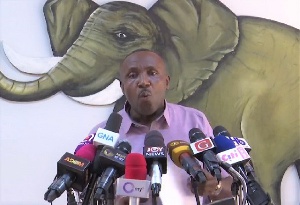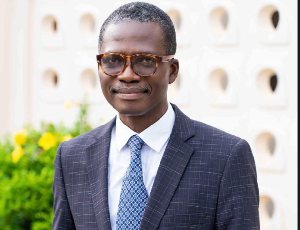In a commendable move towards a sustainable energy future, John Dramani Mahama, the flagbearer of the National Democratic Congress (NDC), has pledged to establish a Renewable Energy Commission. This strategic and deep thought initiative underscores his commitment to addressing Ghana's energy challenges by integrating renewable energy resources into the national energy mix.
There are significant benefits of setting up a Renewable Energy Commission, and successful international references, worth mentioning.
A visionary step towards energy competitiveness and security
Ghana's energy sector has faced numerous challenges, including inconsistent power supply and reliance on fossil fuels. Establishing a Renewable Energy Commission represents a forward-thinking solution to these issues. By focusing on renewable energy, Ghana can diversify its energy sources, reduce dependence on fuels, and enhance energy security.
Key benefits of a Renewable Energy Commission
1. Promotion of Sustainable Development:
A Renewable Energy Commission will play a crucial role in promoting sustainable development by harnessing Ghana's abundant renewable resources, such as solar, wind, and hydropower. This will reduce the environmental impact of energy production and contribute to global climate change mitigation efforts.
2. Economic Growth and Job Creation:
The renewable energy sector has the potential to drive economic growth and create numerous job opportunities. From manufacturing and installation to maintenance and research, the industry can provide employment across various skill levels, contributing to national economic development.
3. Reduction in Energy Costs:
Renewable energy technologies have seen significant cost reductions over the past decade. By investing in renewables, Ghana can reduce energy costs in the long term, making electricity more affordable for consumers and businesses.
4. Energy Independence:
Developing renewable energy resources will reduce Ghana's dependence on fossil fuels. This energy independence will insulate the country from volatile global fuel prices and enhance national security.
5. Technological Innovation:
A Renewable Energy Commission will foster technological innovation by supporting research and development in renewable energy technologies. This will position Ghana as a leader in the region and encourage local expertise and innovation.
International success stories
Several countries have successfully implemented renewable energy commissions or similar bodies, leading to significant advancements in their energy sectors.
1. Germany:
Germany's Renewable Energy Act and the establishment of the German Renewable Energy Agency have been instrumental in the country's transition to renewable energy. Today, Germany is a global leader in solar and wind energy, with renewables accounting for a substantial share of its energy mix.
2. Denmark:
Denmark's commitment to renewable energy is exemplified by its Danish Energy Agency. The country's focus on wind energy has made it a world leader, with wind power meeting over 40% of its electricity demand.
3. South Africa:
The South African Renewable Energy Independent Power Producer Procurement Programme (REIPPPP) has attracted significant investment in renewable energy, leading to the successful deployment of solar and wind projects. This program has created jobs, stimulated economic growth, and increased energy security.
John Dramani Mahama's promise to establish a Renewable Energy Commission is a visionary and strategic step towards ensuring Ghana's energy competitiveness and security. By leveraging the country's renewable energy resources, Ghana can achieve sustainable development, economic growth, and energy independence. The successful experiences of Germany, Denmark, and South Africa provide valuable lessons and highlight the transformative potential of renewable energy. This initiative deserves commendation and full support as Ghana moves towards a brighter, greener future.
Dr. Elikplim Kwabla Apetorgbor
(Power Systems Economist & CEO of Independent Power Generators, Ghana.)
Opinions of Saturday, 27 July 2024
Columnist: Dr. Elikplim Kwabla Apetorgbor















